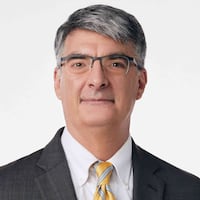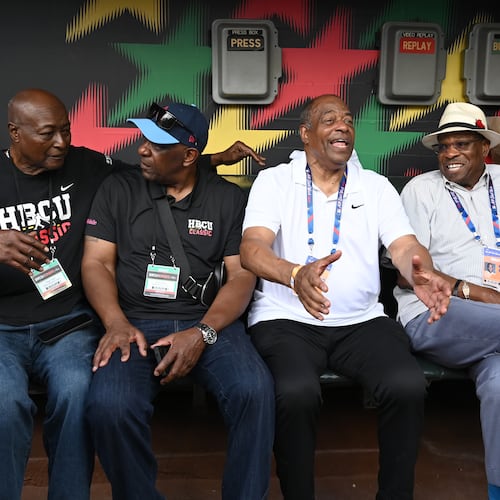The Braves continue to signal a commitment to their team name, including a spotlight on Native American culture and tradition in recent weeks, as other professional sports franchises have opted to change names.
The Cleveland Indians will change their name it was reported Sunday by the New York Times with several other media outlets confirming the Major League Baseball organization’s intention. Earlier this year, the Washington Redskins dropped their name and the National Football League franchise currently exists at the Washington Football Team until a replacement name is announced. Both organizations relented to pressure from Native American groups, fans and business partners. Washington’s name has long been considered a racial slur.
Braves officials told The Atlanta Journal-Constitution in July they have no intention of changing the name of the franchise nor the use of a tomahawk as a logo. They are discussing the tomahawk chant often done at home games.
“We are so proud of our team’s name, and our expectation is that we will always be the Atlanta Braves,” Terry McGuirk, the Braves’ chairman, told the AJC.
“I would say unequivocally the Atlanta Braves’ name will stay the Atlanta Braves,” he added later. “We come to that position as a result of … a lot of listening to our fans, to the Native American community. We have spent the last six months trying to make sure we are grounded in everything we say going forward, so I would again answer the question: Yes, we will be the Atlanta Braves.”
Just last month, the Braves posted on social media an appreciation to Georgia governor Brian Kemp for a proclamation of the recognition of Nov. 27 as Native American Heritage Day. Braves president and CEO Derek Schiller was among those at the ceremony along Nealie McCormick, Donald Kirkland and Vonnie McCormick from the Georgia Council on American Indian Concerns.
Days later, the Braves announced the release of a syllabary t-shirt with net proceeds benefitting the new Kituwah Academy and Eastern Band of Cherokee Indians Speakers Council.
The T-shirt features syllabary - ᎠᏁᏦᎥᏍᎩ (pronounced ah-nay-zo, uh-shki), meaning “Ball Player” and traditional basket weave designs. In a press release about the t-shirt, the Braves wrote: “Last year the Braves committed to build strategic and supportive relationships with diverse groups and tribes in the Native American community, including a cultural working group with the Eastern Band of the Cherokees (EBCI). The Braves and the working group are collaborating on important issues related to culture, education, and outreach. This t-shirt is the latest from the collaboration.”
The release also included a statement from Chief Richard Sneed, Principal Chief of the EBCI. “The EBCI is grateful for the relationship we have built with the Atlanta Braves organization. The release of the syllabary t-shirts demonstrates the Atlanta Braves commitment to honoring the history, culture, and present day lives of Native Americans across Indian Country.”
Within the Native American community, there are strong and varied opinions on the use of the name Braves and associated imagery. Many Native American people, including the National Council of American Indians, have called for the Braves to change both their name and end the use of the chop, asserting the Braves’ name and use of the chop perpetuates the “warrior savage” myth. Some take issue with the chop but not necessarily the name in and of itself. Some are not offended by either.
Braves fans have expressed similar sentiments on both sides of the issue.
The Braves haven’t responded to requests for comment Monday in the aftermath of the Cleveland news.
Cleveland could announce its plans for a name change as soon as this week, the New York Times reported. According to the report, Cleveland plans to keep the Indians name and uniforms for the 2021 season. The franchise, named the Indians since 1915, has previously phased out the use of logos and imagery of mascot Chief Wahoo.
The NFL’s Kansas City Chiefs and the National Hockey League’s Chicago Blackhawks have also said they have no intention of changing their names.
“The brand goes along with the name,” McGuirk told the AJC. “The tomahawk logo on the jersey as a big piece of our iconography is here to stay. We are proud of it. We think our constituencies hold it in an equally high level of esteem.”
The team’s position on the tomahawk chop at games is a different and unresolved question, the executives said.
“At this point in time, those discussions are still ongoing,” Schiller said. “… It’s a topic that deserves a lot of debate and a lot of discussion and a lot of thoughtfulness, and that’s exactly what we are doing.”
The tomahawk chop came under scrutiny in 2019 when St. Louis Cardinals relief pitcher Ryan Helsley, a member of the Cherokee Nation, criticized its use during the National League Division Series. In an interview with the St. Louis Post-Dispatch, Helsley called the chop and chant “a misrepresentation of the Cherokee people or Native Americans in general” and said it depicts them as “caveman-type people” who “aren’t intellectual.”
In a July interview with the AJC, Schiller declined to compare the Braves’ case to the Redskins’ or Indians’, saying: “I don’t think we can speak to those (teams’) situations.”
Schiller said the Braves name, to him, “means somebody who possesses courage, is a warrior. So for me, it’s held in high regard and it’s esteemed by the Native American culture and it’s powerful. It’s very representative of strength and honor.”
The Braves franchise was known by various other names in the late 1800s and early 1900s in Boston: the Red Stockings, Red Caps, Beaneaters, Doves and Rustlers. The team was renamed the Braves in 1912 and known by that moniker until 1936, when the name was changed to the Bees. The team returned to Braves in 1941, and that name followed the franchise as it moved from Boston to Milwaukee in 1953 and from Milwaukee to Atlanta in 1966.
-Staff writers Tim Tucker and Sarah K. Spencer contributed to this report.
About the Author
Keep Reading
The Latest
Featured


